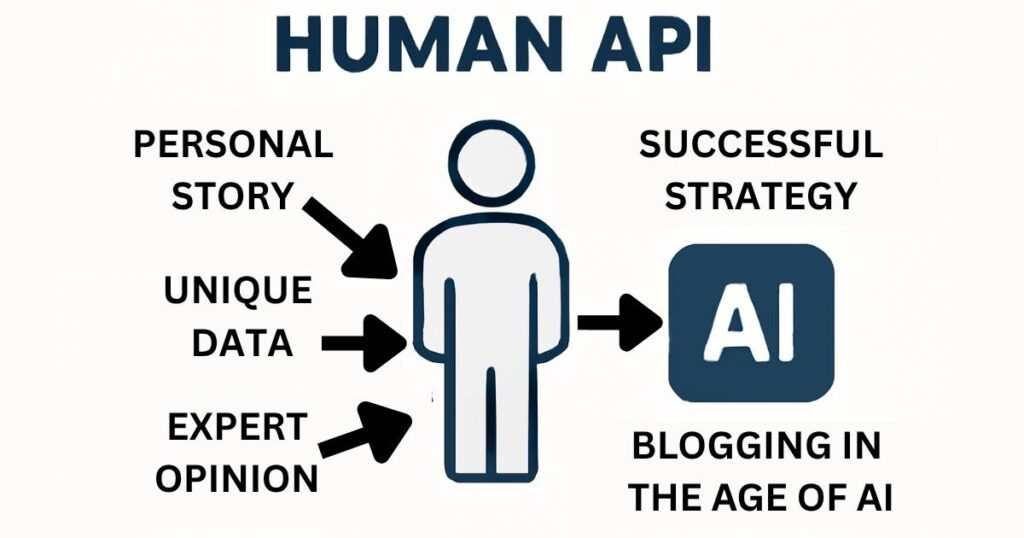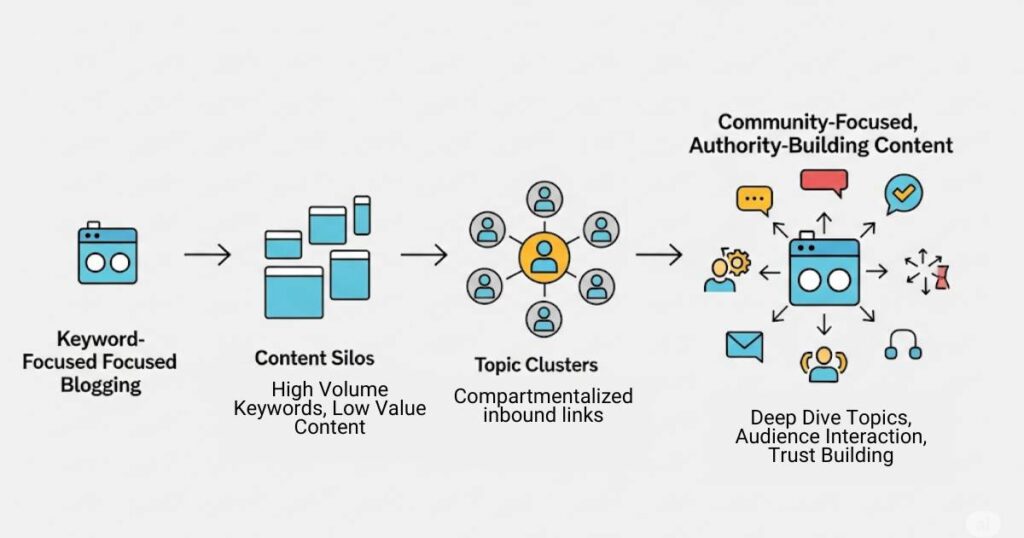AI Won't Kill Blogging, But It's Killing Mediocrity. Here's How to Thrive.
The question, “Is blogging dead?” is one that I encounter frequently during strategy sessions and in discreet conversations among colleagues in marketing. With generative artificial intelligence now capable of producing a 1,000-word article in under a minute, this inquiry is both pertinent and, indeed, essential to address.
From my perspective, the answer is a clear no. Blogging is not dead; however, the time of mediocre, formulaic blogging has ended.
For years, many treated blogging as a numbers game. It was about achieving the right keyword density, posting frequency, and hitting the optimal word count to please the search engine gods. AI is now capable of playing that game with superhuman efficiency. It can flood the internet with generic, surface-level content faster than any human team ever could.
And in doing so, AI has inadvertently done something extraordinary for all of us: it has become the great filter. It has commoditised the average, making the exceptional. The truly human is infinitely more valuable. The future of blogging in the age of AI isn’t about trying to out-produce the machines. It’s about doing what the machines can’t.
The "Great Content Flood": Why AI is Forcing an Evolution
The immediate effect of generative AI is a tsunami of content. The internet is becoming saturated with articles that are grammatically correct, well-structured, and… utterly forgettable. They provide textbook answers but lack a soul, a perspective, and a pulse.
In this new reality, our audience’s attention becomes the scarcest and most valuable resource on the planet. When readers are faced with a dozen articles that all say the same thing, they won’t look for just an answer. They will seek an answer from a trusted source. They’ll seek out a voice they recognise and a perspective they value.
This is the new purpose of a blog. It’s no longer just a library of SEO-optimised articles. It is the single best platform to build authority, showcase a unique point of view, and cultivate a community that shows up for you, not just for a keyword.
Thriving with Your Blog in the Age of AI
Adapting to the evolving landscape of content creation in the age of AI can be both an exciting and enriching journey! I’ve revamped my content strategy around four essential pillars that empower blogging in the age of AI.
1. Embrace Your Unique “Human API”
Think about it: while AI models rely on prompts, our input is enriched by our entire life experiences! I like to refer to this as our “Human API” (Application Programming Interface), the remarkable data points that only we can provide. Consider the following elements:
- Personal Experiences: Reflecting on a few years ago, I took part in an ambitious rebranding initiative that taught me invaluable lessons during a challenging internal communication rollout. The stress, the triumphs, and those crucial learning moments are unique to me and provide insights that generic advice simply can’t replicate. Sharing these stories infuses authenticity into our content.
- Firsthand Anecdotes: Every thoughtful conversation with clients, those surprising “wow” discoveries in our analytics, or that enlightening moment at an industry conference are treasures! These anecdotes form the exclusive content assets that enhance our connection with readers.
- A Strong, Un-replicable Voice: Our humour, skepticism, analogies, and passion, these are the vibrant threads of our brand’s personality. AI might mimic style, but it cannot originate an authentic voice.
Your “Human API” is truly your competitive edge; it sets your content apart amidst the AI chatter.

2. Use AI as Your Creative Co-Pilot, Not Your Author
I use AI daily, but I ensure it never takes the reins as the primary author of my work. Instead, I see it as my enthusiastic intern, brainstorming partner, and research ally! Here’s how I effectively collaborate with AI:
- Generate Outlines: When I feel stuck, I’ll ask AI to propose five different structures for a blog post.
- Craft Title Variations: I’ll write a title and ask AI to give me ten alternative versions with different emotional tones.
- Summarise Research: I can feed it a dense, 20-page report and ask for the five key takeaways.
- Repurpose Content: I use it to transform my final blog post into a draft for a LinkedIn post.
By letting AI handle the heavy lifting, I can dedicate my time to deep, strategic thinking and compelling storytelling.
3. Shift Focus from Keywords to Community
While SEO remains important, its role is changing. I believe the ultimate goal of blogging in the age of AI is to build a loyal audience that seeks you out directly. This means treating your blog as the center of a community.
Engage with every comment. Ask questions at the end of your posts and continue the conversation on social media. Build an email list and provide your subscribers with exclusive insights. When you build a community, you are no longer solely dependent on the whims of an algorithm.

4. Prioritise Quality and Depth Over Quantity and Speed
AI will always win the race for speed and quantity. We can’t compete there, so we must change the terms of the competition. Humans win on quality and depth.
Instead of publishing five surface-level, 800-word posts a week, I now focus on publishing one or two truly exceptional, 1,500-word articles that offer a definitive perspective. These “pillar” posts become evergreen assets that build authority and trust over time. They are researched, filled with personal insights, and crafted with care, things that AI simply cannot rush.
The Future of Search and E-E-A-T
Google’s guidelines provide an exciting glimpse into the future! Their focus on E-E-A-T (Experience, Expertise, Authoritativeness, and Trustworthiness) highlights the importance of authentic human insights. AI-generated content can simulate expertise and authority, but it fundamentally cannot have firsthand, lived experience. This is a powerful, built-in advantage for human creators who share real-world stories and insights. I predict that search engines will become increasingly adept at identifying and rewarding content that accurately represents this genuine human experience.
Conclusion: The Most Human Content Wins
Blogging in the age of AI is not only alive but is also on the verge of a renaissance. AI is not the enemy of blogging; rather, it eliminates low-effort, soulless content that should have been automated long ago.
It serves as a powerful tool that compels us to improve, becoming more thoughtful, original, and human in our writing. AI challenges us to discover our unique voices and share authentic experiences. In a world flooded with artificial text, the most genuine content will not only endure; it will be valued and appreciated.
How are you changing your approach to content in the age of AI? I’m curious to read your thoughts in the comments.
A short note: This blog was written by me and refined by Generative AI. 😉




